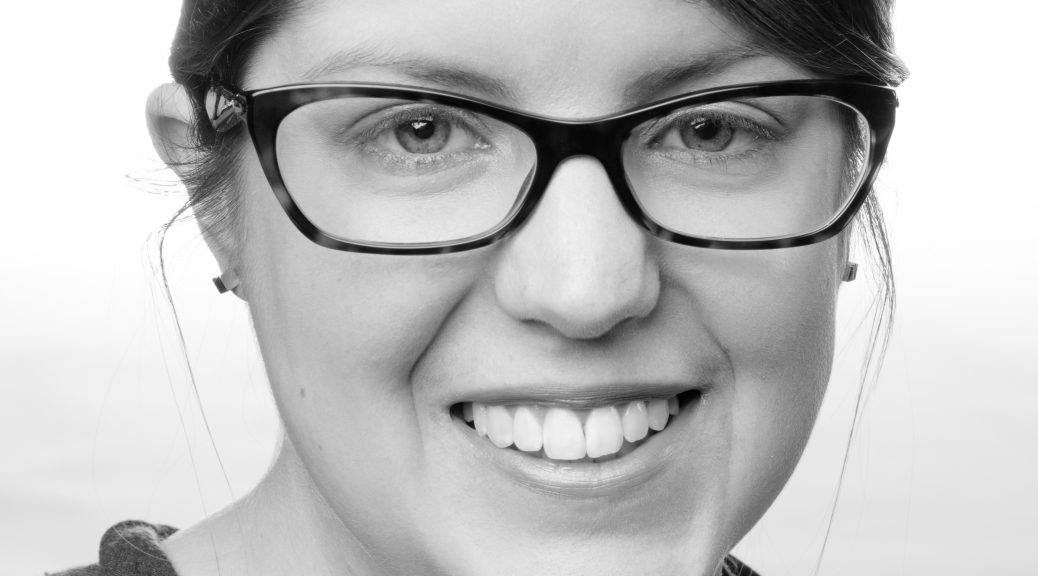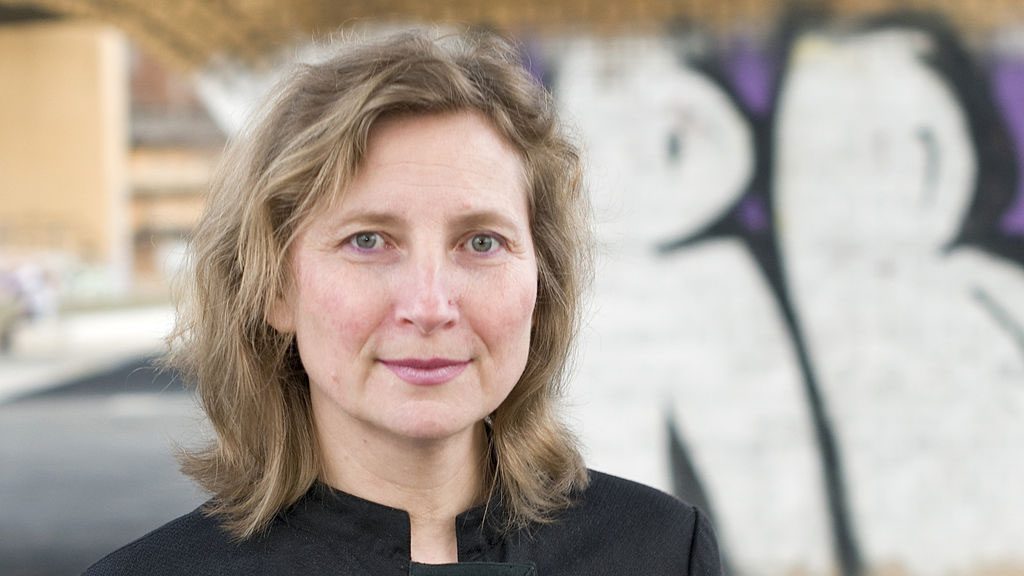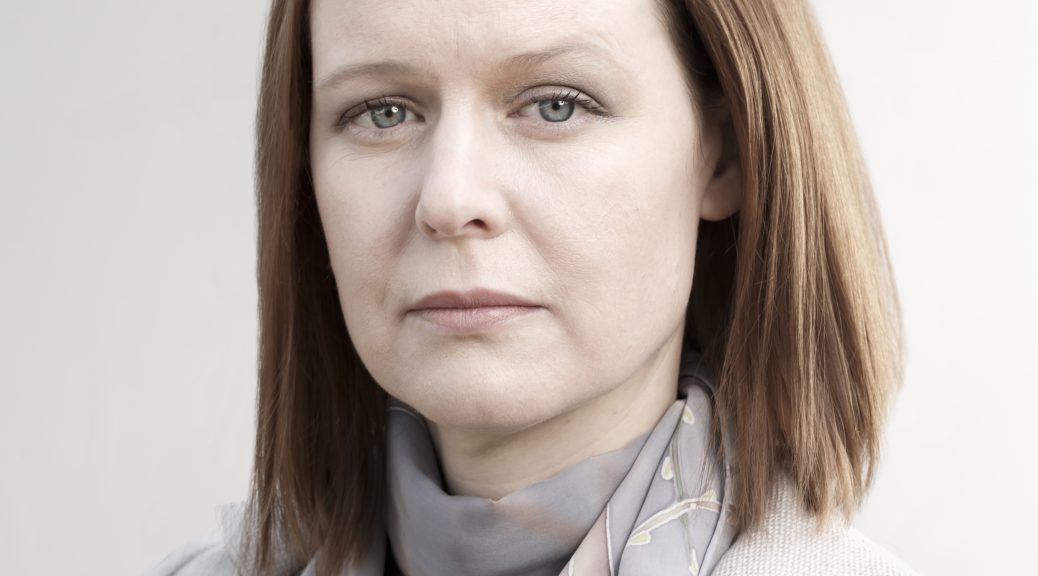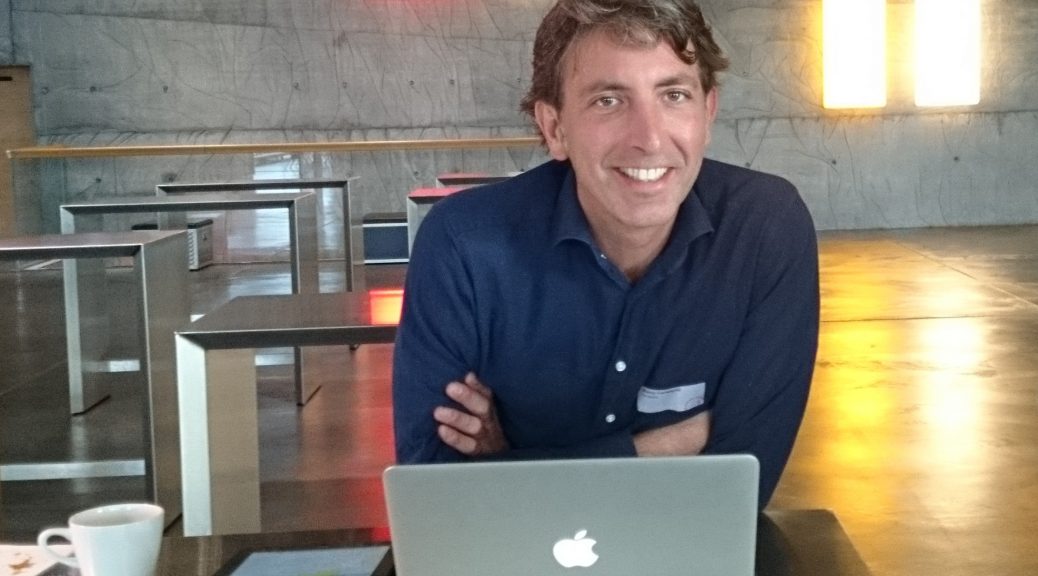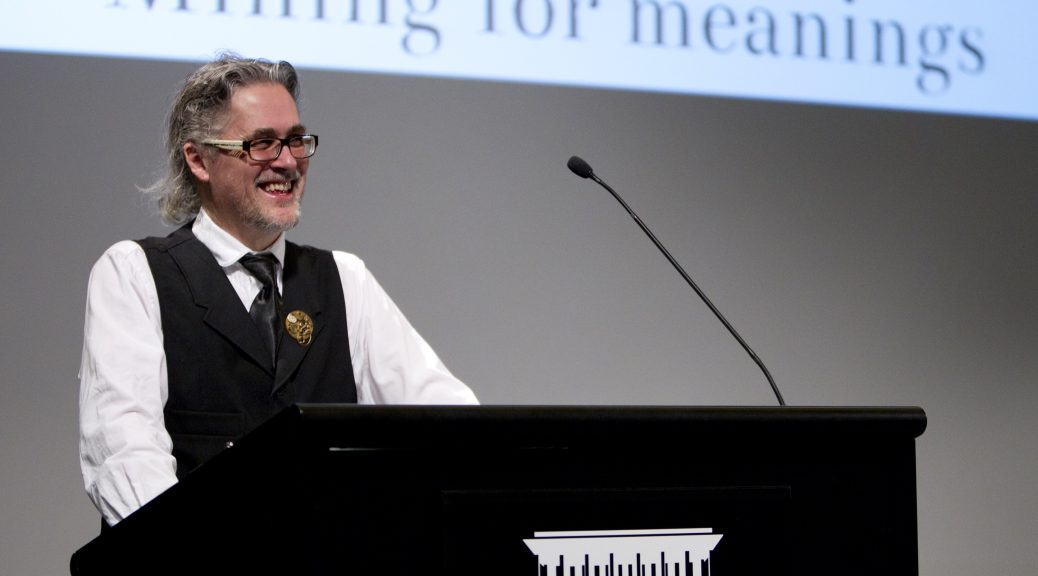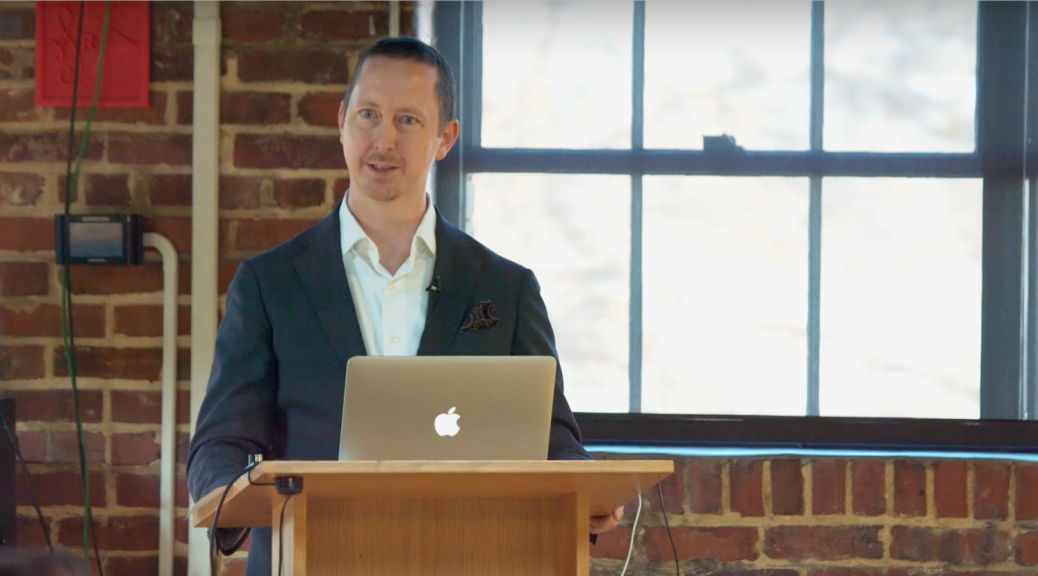Sarah Powell is currently the Rights Specialist at Auckland War Memorial Museum where the philosophy towards access and reuse of their digitised collections is “open by default, closed by exception.” Her role consists of managing rights and permissions for digital images of collection and providing clear and consistent statements for online visitors. She has also been involved with implementing a cultural permissions statement which is assigned to images of Māori and Pacific objects, ensuring ethical and cultural considerations are taken into account alongside legal considerations. She has recently completed a Masters in Museum and Heritage Studies from Victoria University of Wellington where she focused on the adoption of the Open GLAM philosophy within New Zealand cultural heritage institutions.
Monthly Archives: March 2017
Barbara Fischer
Barbara is an art manager, aiming to make things possible together. That means intermediating since 1994 among different stakeholders: Institutions and artists, public and organisational pretensions, economic needs and financial limits or for five years now connecting galleries, libraries, archives and museums (GLAM) with volunteers out of the Wikiverse. Thus enhancing GLAM to join the Open Culture movement as in Wikimedia projects. Like the GLAM hackathon Coding da Vinci, which she outlined with DDB, digiS and OKF.
Ellen Euler
Dr. Ellen Euler, LL.M., is Deputy Director of Finances, Law, and Communication of the Deutsche Digitale Bibliothek and Director of the think tank “Cultural heritage digital”. As she studied law and has an additional qualification in information law from the Institute for information, telecommunications and media law (ITM) and a master of laws degree in IT law & law of intellectual property from the course “European Legal Informatics Study Programme” (Eulisp), she is an expert in the (copyright) legal questions of our digital cultural heritage, as well of the economic aspects associated. As national Project Lead she was responsible for the national adaptation of the Creative Commons licenses 1.0. In numerous publications and lectures she handles the topic of how the legal framework must be designed so that archives, libraries and museums can adequately fulfil their respective institutional tasks in the digital and networked era (including articles on legal aspects of Web harvesting, digital long-term archiving and visual catalogue proof, as well as on digital deposit copy right). To merge and accompany the German discourse on cultural heritage in the digital world initiated the series “Cultural heritage in the digital world”, whose first edition “A Future for the Past” was published in 2015.
Speaker: Harry Verwayen
Deputy Director, Europeana
A GLAM toolbox for assessing impact
Harry Verwayen will give an overview of the state-of the art of ‘impact’ thinking in our sector ranging from the theoretical to the very practical day to day application of it. You will get an insight in impact as a useful concept, the tools and methodologies that have been developed to design, assess and narrate impact, and practical examples of institutions that have used this methodology to their advantage, like Europeana and SMK Open.
Learn more about the impact toolbox
About Harry Verwayen
Harry Verwayen is the Deputy Director of Europeana. He is responsible for making sure that the organisation meets its objectives, and do it well. What he likes to do more than anything else though is to design and implement new business models that will change our way of thinking about heritage as an enabler of societal and economic growth. Lately, much of his attention and effort is directed towards the developments of the sharing economy. A visual thinker, he needs a white board as much as a strong coffee.
Speaker: Tim Sherratt
Access is never simply ‘open’
It’s a struggle for meaning, power, and value. I’m interested in using digital tools to see collections differently, to create opportunities for reflection and resistance. From Australia’s racist immigration policies, to the encroachments of state surveillance, I’ll be exploring how digital access changes the types of questions we can ask of the past.
About Tim Sherratt
Tim Sherratt is a historian and hacker who researches the possibilities and politics of digital cultural collections. Tim has worked across the cultural heritage sector and has been developing online resources relating to libraries, archives, museums and history since 1993. He’s currently Associate Professor of Digital Heritage at the University of Canberra. Tim’s tools and experiments include important things like The Real Face of White Australia, useful things like QueryPic, and strange things like The Vintage Face Depot. You can find him at timsherratt.org or as @wragge on Twitter.
Speaker: Rob Stein
Chief Program Officer, American Alliance of Museums
Can the cultural sector really change lives?
For those of us working in galleries, libraries, archives, and museums, we believe that answer to be a resounding yes. However, demonstrating this impact – beyond anecdotal evidence – has proven to be devilishly hard. Why is that the case?
While the cultural sector has progressed significantly to adopt technology that can exhibit collections, engage audiences, and document histories – have we missed the chance to prove why those things are important in the first place? As support for culture seems to be under continual threat, galleries, libraries, archives, and museums must leverage these technical skills to deliver measurable social impact lest we risk being sidelined as recreational, superficial, and optional.
Let’s explore together the ways that cultural organizations can advance our work in this area and document the proof of change we see every day.
About Rob Stein
Robert Stein is a museum leader, technology expert, and strategist with deep experience in the museum field heading up innovative projects and diverse teams. In April 2016, Rob joined the American Alliance of Museums as the Executive Vice President and Chief Program Officer to lead the organization’s programming efforts in service to both national and global audiences. In that role, Stein is responsible for key strategic initiatives including the expansion of the Alliance’s role as a thought leader, content provider, and global catalyst for excellence in the field of museums.
Rob is a sought after author, speaker, and consultant, focusing on the impact museums can have in their community, how technology efforts can change the dynamic of museum innovation, and how metrics and measurement can drive continuous improvement for the practice of museums.
Stein is active in service to the museum field having served as a board member of the Museum Computer Network, an active member of the International Program Committee of Museums and the Web, and as a National Advisor to the Education Committee of AAM. He is currently a Senior Advisor to the National Center for Arts Research at Southern Methodist University.
Speaker: Marie Østergaard
Dokk1 – Building on a Burning Platform
Dokk1 – Aarhus’ new main library – opened in June 2015. The talk will focus on Dokk1 as a result of many years of prototyping, design thinking, testing, researching and a highly inclusive process as well as discuss how Dokk1 has become an example of what can come from the emergent necessity of rethinking spaces, services and community engagement. Working intensely with involvement of a massive amount of new and non-traditional partnerships on all levels of the organization in order to develop new service designs and events, space praxis has been redefined. Through user involvement the identity and spaces in Dokk1 have changed our library identity forever. It has turned the library into a city square, with all the transparency, diversity and mutual ownership that follows such a change.
About Marie Østergaard
Marie is Library Director at Aarhus Public Libraries. Since 2001, she has been part of Aarhus Public Libraries’ development of the physical library of the future. Focusing on interactions, user-involvement, network-development, prototyping and communication in the physical library space, Aarhus has investigated new technologies, involvement processes and learning. In a wide range of projects and processes with users, network and partners she has focused on the development of the “next library” – the library of the future. From 2005, Marie was the project leader of the building of Dokk1, implementing and developing these ideas as well as introducing new forms of user- and citizen involvement in the planning and building of Dokk1. Marie is also part of Ineli – International Network of Emerging Library Innovators.
****Early Bird Special**** Virtual Reality Workshop and Studio Tour
Virtual Reality for Creative Reuses in Cultural Institutions
Thursday, 20/04, 15:00 (invitation required)
If you have registered for the conference before 15/3 you get the opportunity to take part in this preconference special. In case you are among the lucky participants, you will receive an invitation.
This workshop will give an overview of the history of virtual reality and how this technology has become a new tool for a wide range of applications in the last two years. We will take a closer look at how virtual reality could be used for creative reuses of cultural heritage in the context of memory institutions.
During the workshop you will have the opportunity to get to know a number of showcases on the HTC Vive glasses. Just give it a try yourself!
Daniel Schäfer, Media & User Experience
In all of Daniel’s work, he aims to indulge the audience in the experience process and to make technical parameters virtually invisible. Daniel co-founded [i:ko], a Hamburg based company, focusing on content development, smart technologies and media engineering. At [i:ko], he develops content for all forms of media, often interconnecting them – from television, mobile applications to virtual reality and beyond. For him, it is not the platform that matters but the experience that counts at the end of the day.
CC Change Your Mind
Ellen Euler, Deputy Manager of Finances, Law, and Communication, German Digital Library
Barbara Fischer, Curator for Cultural Partnerships, Wikimedia Germany
Often there seems to be a lot of uncertainty around the use of open licenses, like Creative Commons offers them. Buzzwords like copyright, public domain and licensing laws tend to prompt questions and uncertainty in many institutions. Therefore Wikimedia Deutschland and the Deutsche Digitale Bibliothek have developed a fun training program for employees of GLAM institutions and everyone dealing with digitization of cultural heritage who wants to know more about the potential of open licensing for education and learning, science and research, creative reuse and innovation.
Reuse of Cultural Heritage: A Challenging Topic
Nora Al-Badri, Jan Nikolai Nelles, Artists, Berlin
Sarah Powell, Rights specialist at Auckland War Memorial Museum
The Other Nefertiti is a 3D-printed replica of the Nefertiti Bust, an ancient Egyptian artifact housed in the Neues Museum in Berlin. The artwork’s creation entailed the release of a high-resolution 3D data file that was shared freely on the internet. The work, as the artists state, stands as proof of colonial pillaging and challenges notions of national ownership; it considers the role of copying in preservation and access to evidence in relation to global heritage. The project received wide media coverage for its unauthorized 3D scan of the artifact inside the museum and its public release despite the copyright holder’s exclusive reproduction rights. With their input the artists will discuss why in their opinion the copying of artifacts in physical and digital forms points to the ever-improving technical reproduction of evidence and how authenticity can be discussed openly in online forums. The sharing and collaborative preservation avoid restrictions and suppression of evidence.
At the Auckland War Memorial Museum, New Zealand’s first and its largest regional museum even after having established an open licensing policy and having released 18 openly available 3D models on Sketchfab the reuse of cultural material can still be challenging. In many cases, the issue is not copyright, but cultural sensitivity and therefore the museum developed an indigenous rights statements for images of Māori and Pacific taonga. In these cases they assign a special licence where they know that it is appropriate. These statements known as cultural permissions statement help people understand that we are letting them view such objects but they cannot reuse the images, even if they are out of copyright.
